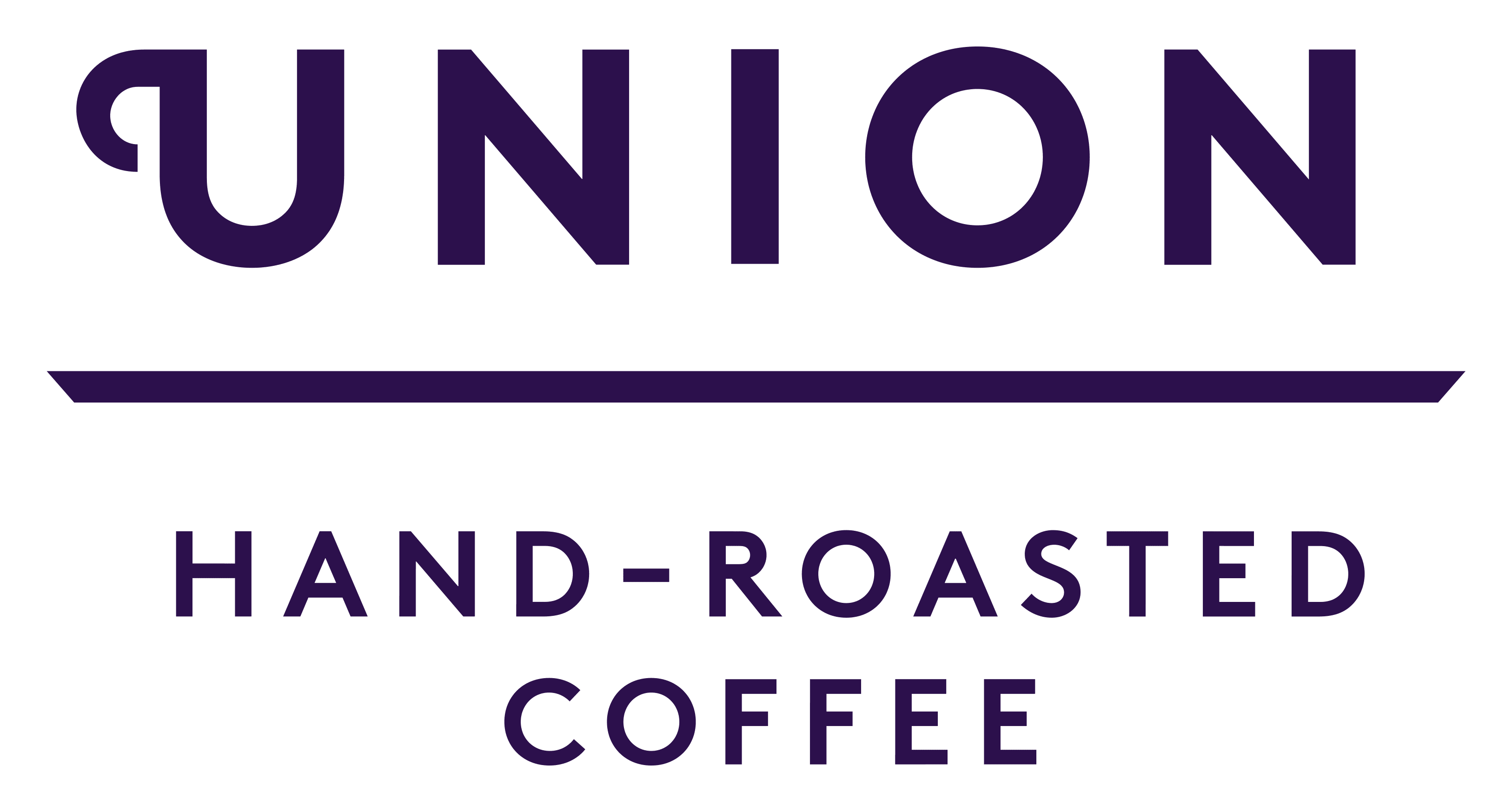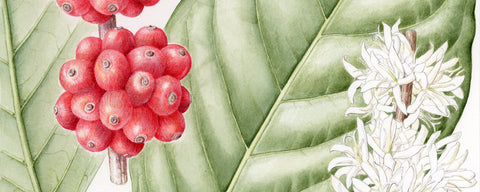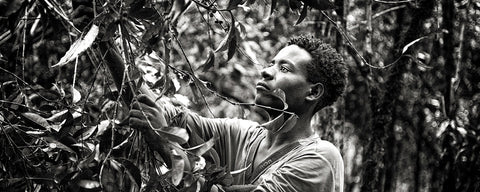First Published - November 21, 2016 (By Jamie - Digital Marketing)
Union is partnered with Royal Botanic Gardens, Kew, to conserve the Yayu Coffee Forest in Ethiopia, and invest in the region’s coffee cooperatives. Our Union Direct Trade initiative is enhancing smallholder livelihoods, preserving a unique wild coffee biosphere, and improving the farms’ coffee quality. We’re excited to build sustainable relationships which motivate farmers to grow excellent coffee, and you get to enjoy a delicious, responsibly sourced cup full of exotic coffee flavours.
Read on to find out more, or click here to try the Yayu Wild Forest Coffees.
Coffee from Ethiopia gives us distinctive and astonishingly exotic flavours. It’s a very diverse growing area, which constantly surprises us with its variation in taste profiles. Brewing a cup with beans from the Yirgacheffe region often amazes us with aromatic notes of bergamot (like Earl Grey tea), whilst coffee from Harrar can get our senses somersaulting with spicy, earthy flavour notes.
The unusual flavours are partly due to the wild coffee varietals native to places like the Yayu Coffee Forest, the birthplace of a rather special species, Coffea arabica. It was here in the western Ethiopian highlands that humans first discovered coffee, and the region continues to produce some of the tastiest speciality grade coffee available. But Ethiopia’s coffee biospheres, and the livelihoods they support, are under threat from climate change, deforestation and changing land use. In fact, the country lost a staggering 70% of its forests in the last century. So, is anyone doing anything about it?

Thankfully, several organisations are working together to preserve it, and we’re proud to be one of them. In 2014 we began a project in Yayu with Royal Botanic Gardens, Kew, and Ethiopia Coffee Forest Forum. At Union Hand-Roasted we believe in doing things right for the long haul. We don’t fly over to shake hands with coffee farmers and depart with a few dozen bags of coffee bought at a premium price. That’s not us. We think it’s more valuable and ethical to establish sustainable, long-term relationships with farmers and communities. Union invests in development and helps conserve the land that makes it all possible. That means farmers are motivated to grow excellent coffee, and you get to enjoy a delicious, responsibly sourced cup. This is the Union Direct Trade approach, and in Yayu it’s helping achieve something special.

Conditions for arabica cultivation in Yayu are close to ideal: high elevation and a warm climate with cool nights. This creates dense beans with high concentrations of nutrients and oils which make them so gloriously tasty when roasted. The science bit is really exciting, and that’s where Kew comes in. We work with their Plant Resources team, led by Head of Coffee Research, Aaron Davis, to better understand the complex coffee forest and work to safeguard it. And it’s not just coffee that’s responsible for the biosphere’s equilibrium. Yayu is a designated UNESCO Biosphere Reserve, with a delicate interdependence between flora and fauna. Larger forest trees provide essential shade for coffee trees, which in turn support companion plants like cardamom. It also hosts thriving communities of bees which are vital for coffee tree pollination (those bees really must be buzzing!).
Did you know that arabica cultivars found outside east Africa stem from just a handful of seeds? They’ve developed some useful traits, but decades of commercial breeding has narrowed the gene pool, sometimes to the detriment of cup quality (we want to retain those beautiful flavours!). The Kew team are mapping the genetics of hundreds of undocumented wild arabica varietals in the pristine Yayu forests. Fostering genetic diversity ensures a healthy gene pool which not only promotes interesting flavours, but strengthens disease and climate resilience. The knowledge we’re building up will help the wider coffee community protect arabica for future generations.

Ethiopia is one of the world’s top producing countries, delivering over 6.5 million bags annually. That’s 25% of the country’s export income. Here’s what makes it extra special, though: There’re hardly any large-scale farms. If you’re cultivating coffee in Ethiopia, you’re likely to be one of the 15 million smallholders with less than five hectares of land, or perhaps even growing it in your garden! In Yayu, coffee generates up to 70% of the income for over 90% of the population. But there’s a problem. Most farmers are struggling to make sufficient income from coffee due to global market volatility and climate change. Instead they’re turning to maize and the narcotic cash crop, khat, causing deforestation and ecosystem loss.

Our Yayu team are running a three-year plan to help five coffee cooperatives (groups of smallholders) improve their coffee quality. Union pays more for higher grade coffee, helping alleviate poverty and reduce land use change. Led by Union’s Sustainable Relationships Manager, Pascale, together with experienced coffee agronomist, Graciano Cruz, we’re investing in farm infrastructure and training. We installed coffee drying beds, pulping, sorting and dry milling equipment. Crucially, the harvesting and processing training gives farmers expertise to improve coffee quality and build climate resilience.

Quality improvement and increased farmer income are fantastic, but what about social impact? Well, the training has the added benefit of incentivising young people to stay in the forest communities rather than moving to urban areas. In fact, local schools have introduced weekly coffee classes. We’ve also noticed a positive impact on gender diversity. The local trainers recruited for the project are women, offering them an opportunity to raise their profile in the community and earn additional income.

The Yayu project has developed a resilience and quality strategy which can be scaled up across Ethiopia in the future. And let’s not forget those exotic coffee flavours! We’re excited to share with you several Yayu forest coffees available to purchase now. Gechi is citrusy with notes of yellow plum, a hint of matcha tea and chewy toffee. We’re also sweet on the coffee from Geri cooperative, which we think is reminiscent of candied orange with a hint of jasmine – a veritable orange sorbet of a coffee! Whichever one you choose, supporting Union Direct Trade will help preserve the Yayu Coffee Forest environment, its arabica species, and make a meaningful contribution to the livelihoods of hundreds of smallholder farmers.


